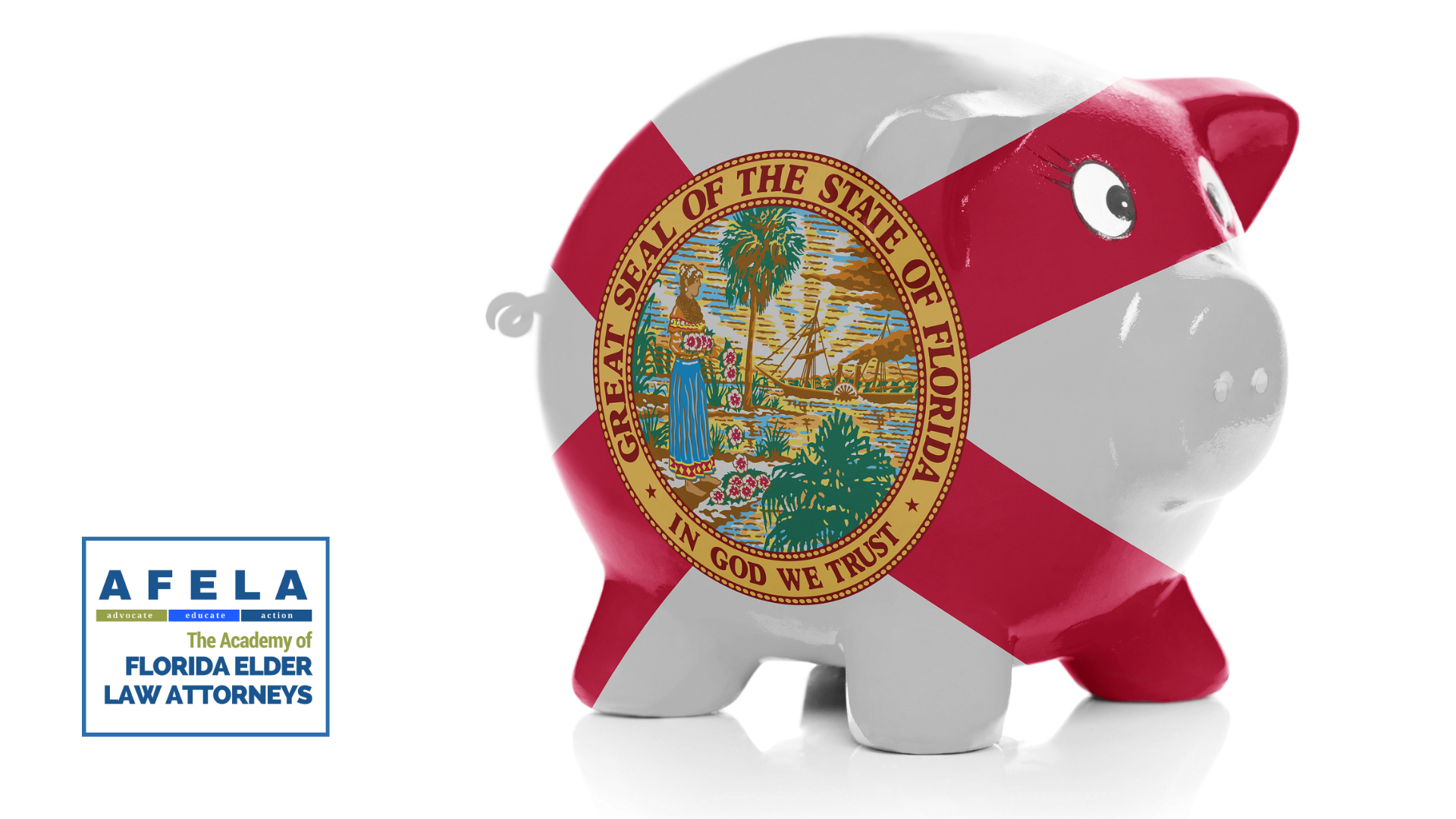
Did you know that if you live in the Sunshine State of Florida it is important to create a Florida estate plan for yourself and your family? You need to protect yourself, what you love most, your business, and be sure the legacy you are creating will survive you. Florida elder law attorneys know the importance of your goals and will work with you and your goals to create a plan that will work for you, your family, your business and your legacy.
Florida elder law attorneys, when planning with their clients, take into account not only who their clients want to inherit from them and who should make their decisions in a moment of crisis, but what the implications their planning may or may not have. Therefore, there is a very involved and candid look at their financial picture, including their tax structure.
Many Floridians are unaware that taxes play an important role in their Florida estate plan. In their estate planning, the decisions they make now can have both a lifetime and deathtime impact on their estate, which is critical to plan for. We have four points we would like to share with you.
- It takes planning to avoid federal estate taxes. Did you know that one of the benefits of living in Florida is that there are no state death taxes? However, this is not the case on the federal level. All Americans, with a taxable estate high enough in value, may face estate taxation. The goal of elder law attorneys is that through your comprehensive Florida estate planning the risk that your estate will be taxed at your death can be minimized. Your Florida elder law attorney will take into careful consideration a number of factors including, but not limited to, your family structure, what assets comprise your taxable estate, the structure and nature of those assets, and the strategies available to you.
- Lifetime gifts need to be made carefully. Your estate planning and donative intent can impact your annual taxes as well. This occurs through the gift tax. While you can give your loved ones the annual exclusion amount each year, which is $17,000 per person this year according to the IRS, you can make larger gifts each year and still avoid lifetime taxation. To engage in an advanced strategy like this, you need to meet with your experienced Florida elder law attorney to learn more about the pros and cons of this type of strategy as well as how it may benefit your estate later.
- An estate planning strategy that incorporates the Generation Skipping Tax (GST) could be used. There are careful rules to plan around when it comes to using the GST as a part of your estate planning. This comes into play when you leave to a family member where there is a thirty-seven and a half year age difference or more. While there can be significant benefits to this type of planning and reasons to complete it, this should not be undertaken without the advice of an experienced Florida elder law attorney.
- Beware of any unprotected property and the probate estate. You should not leave any of your assets unprotected. Anything you own at the time of your death that does not have a co-owner or beneficiary, could be subject to the probate process. This is the legal court process that allows solely owner property to pass to the intended beneficiaries. Unfortunately, as a result of the probate process, this is after creditors have the opportunity to file their claims against your estate. When you are planning for your estate and your taxes, it is critical to work with your Florida elder law attorney to create the right trust agreement for you. It is a trust agreement, and not a last will and testament, that can help you avoid the probate process.
We know this article may raise more questions than it answers. The Academy of Florida Elder Law Attorneys (AFELA) is the pre-eminent organization of Florida elder law attorneys providing advocacy, education and action on behalf of seniors and people with disabilities. We encourage you to contact one of our attorneys in your area using our Find a Lawyer website for assistance.








